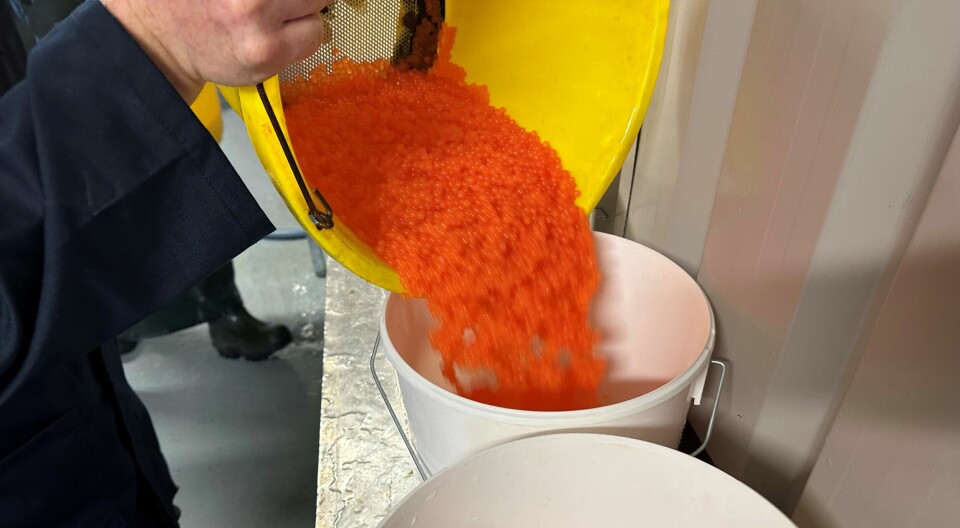
Salmon ova heavyweights urge Norway to allow gene editing
Country has ‘ethical duty’ to change rules for benefit of fish and industry
Salmon egg producers AquaGen and Benchmark Genetics, and the world’s biggest Atlantic salmon farmers, Mowi and SalMar, have strongly backed a proposal to allow precision breeding (PB) techniques, including gene editing, in Norway.
Together, the four companies represent most of the egg and genetic supply to the global salmon farming industry and have submitted a joint response to a Norwegian government consultation on proposals to keep regulation up to date with rapidly developing genetic technology.
The majority (7-4) of a committee of experts appointed by the government to look at what changes are necessary are in favour of PB as long as it is deemed “ethically sound” after being assessed according to four central principles: utility, sustainability, fair distribution and transparency.
Transformative potential
In their response, the companies point out that selective breeding programmes for Atlantic salmon have been decisive for the success of developing efficient and sustainable salmon farming in Norway, and that precision breeding techniques, and gene editing in particular, have transformative potential to tackle some of the most pressing health, welfare and environmental challenges facing salmon farming today.
“All our companies conduct research and development with this aim in mind. It is important to note that the focus of these projects is towards applications of precision breeding that have simultaneous benefits for the health and welfare of the fish, as well as reduced environmental impact”, they write.
Examples of ongoing research involving the companies are:
- Genetic resistance to salmon lice
- Genetic resistance to pathogens
- Sterility
“These projects involve both precision breeding and other non-precision breeding technologies. Successful results of these projects will prevent the problem of premature maturation in production, and act as a safeguard against genetic introgression of farmed fish with wild fish in the event of escape,” write the four companies. “As such, we focus on simultaneous sterilisation along with any applications of gene editing, to minimise any risk of unwanted introgression of PB farmed salmon and protect the wild salmon genetic pool.”
An extra tool
The companies note that precision breeding technologies would not replace their well-managed selective breeding programmes but are a supplement.
Selective breeding via conventional methods is an effective method for improving all heritable traits, including disease resistance. However, the companies point out that a breeding programme is a compromise between the number of traits included and genetic progress. Atlantic salmon have a long generation interval (3-4 years), which means that only modest improvements can be expected for each trait in the short to medium term.
Furthermore, they describe that some traits have little or no heritability, and the only way to improve these is through the use of PB technology.
According to the companies, the use of PB technologies can both accelerate the genetic improvement of specific traits such as disease resistance and allow the breeding programme to place additional emphasis on other traits in the breeding target, which means that faster genetic progress can be achieved for these traits as well.
“It is our opinion that when transformative solutions to improve health and welfare, and reduce environmental impact, are developed through these R&D pipelines, it is our ethical duty to ensure a pragmatic and risk-adjusted regulatory system to realise the benefits for the industry,” they write.
England is the example
The companies say the committee’s proposals are in line with proposed regulatory changes to allow PB in England*, which specifically state: “Precision breeding (PB) refers to the use of modern biotechnology to produce a plant or animal with genetic changes that could also have arisen within the existing gene pool, through traditional breeding processes.”
They agree that such PB changes should be considered and classified differently than GMOs (genetically modified organisms), which should refer to transgenic organisms where foreign DNA is inserted into the species' genome.
“This differentiation is critical since the current regulatory system for GMOs is an obstacle to realising the benefits of PB technology for the Norwegian aquaculture industry and will stifle innovation in this area if it continues.”
The companies say that if existing GMO legislation was applied to PB technologies, it would put Norway at a competitive disadvantage compared to many other regions in the world with pragmatic and progressive regulations of PB technologies, as proposed by the majority of the committee.
No labelling
The companies also argue against additional labelling for PB products.
“We believe that precision breeding and GMO legislation should only apply to hereditary changes caused by genetic technology, and not to non-hereditary effects. Therefore, we agree with the majority proposal, which excludes non-hereditary changes,” write the companies.
“This type of genetic technology, which can be used for vaccine production or modification of gene expression, is already regulated by other laws. This is in line with the current trend of approval and use of DNA- and RNA-based vaccines, such as the fish vaccine ‘Clynav’ from Elanco and several Covid vaccines currently in use.”
Faster adaptation
The companies conclude that the committee’s recommendation to move responsibility for approvals from environmental ministries/agencies to food authorities and regulations will ensure Norway is in line with the way the EU organises its regulations and policies in this area.
They add that such a move would also “recognise that genetically edited food and feed, including livestock and fish, are part of the food system, where gene editing is a breeding tool that expands the existing food production toolbox. Such an organisation will enable faster adaptation of the EU regulations, as the majority in the committee points out”.
*The proposed changes to PB regulation in England will not apply in Scotland, as such matters are devolved to the Scottish Parliament.























































